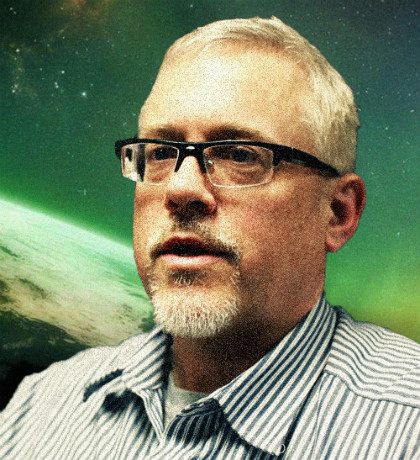Futurists on Religious Compatibility
Celebrity futurists acknowledge the compatibility of religion with their visions of human potential.
James Hughes

"Transhumanism – the proposition that human beings should use technology to transcend the limitations of the body and brain – is a product of the Enlightenment humanist tradition. As a consequence most avowed transhumanists are secular, and many religious are skeptical or hostile towards the transhumanist project. However there are also many religious transhumanists who find the project of human enhancement at least consistent with, and sometimes a fulfillment of, their metaphysics, soteriologies and eschatologies. Transhumanism appears to be especially compatible with religious traditions that emphasize human agency and evolution to a transcendent state, such as Buddhism, or that have incorporated Enlightenment values, such as liberal Christianity. But elements of the transhumanist worldview and enhancement technologies are compatible with one element or another of most world faiths, even the most fundamentalist. We can thus expect that human enhancement technologies will be adopted creatively into the theologies of groups within all the world’s faiths, producing many flavors of 'trans-spirituality'."
Ray Kurzweil

"Even if we limit our discussion to computers that are not directly derived from a particular human brain, they will increasingly appear to have their own personalities, evidencing reactions that we can only label as emotions and articulating their own goals and purposes. They will appear to have their own free will. [Computers] will claim to have spiritual experiences. And people ‒ those still using carbon-based neurons or otherwise ‒ will believe them." (Kurzweil, Ray. The Age of Spiritual Machines. New York: Penguin, 1999. 6. Print.)
"When we can determine the neurological correlates of the variety of spiritual experiences that our species is capable of, we are likely to be able to enhance these experiences in the same way that we will enhance other human experiences. With the next stage of evolution creating a new generation of humans that will be trillions of times more capable and complex than humans today, our ability for spiritual experience and insight is also likely to gain in power and depth. Just being ‒ experiencing being conscious ‒ is spiritual, and reflects the essence of spirituality. Machines, derived from human thinking and surpassing humans in their capacity for experience, will claim to be conscious, and thus to be spiritual. They will believe that they are conscious. They will believe that they have spiritual experiences. They will be convinced that these experiences are meaningful. And given the historical inclination of the human race to anthropomorphize the phenomena we encounter, and the persuasiveness of the machines, we're likely to believe them when they tell us this. Twenty-first-century machines ‒ based on the design of human thinking ‒ will do as their human progenitors have done ‒ going to real and virtual houses of worship, meditating, praying, and transcending ‒ to connect with their spiritual dimension." (Kurzweil, Ray. The Age of Spiritual Machines. New York: Penguin, 1999. 153. Print.)
"I noticed, of course, many parallels among the world's religious traditions, but even the inconsistencies were illuminating. It became clear to me that the basic truths [of religious traditions] were profound enough to transcend apparent contradictions." (Kurzweil, Ray. The Singularity Is Near. New York: Penguin, 2005. 1. Print.)
"This, then, was the religion that I was raised with: veneration for human creativity and the power of ideas." (Kurzweil, Ray. The Singularity Is Near. New York: Penguin, 2005. 2. Print.)

